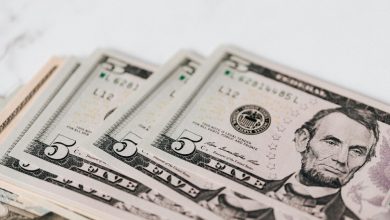7 Amazing Ways to Save Money Around the House

Today, consumers find themselves buried in credit card debt, medical bills, and student loan debt. Behind every dollar that goes out, there’s another dollar that could have gone towards paying off interest into a pot of money for when you retire.
There are many different ways to save money around the house. You’ll just have to spend your money wisely to see some significant savings.
The best way to save money is to get creative and find ways that you can spend it less. But if you can’t do that, you might as well get the most value possible out of every dollar you do spend.
The following tips will help you save money around the house.
1. Buy and use reusable shopping bags.
If you’re like most Americans, you probably have a closet full of plastic grocery bags you’ve acquired during the past decade or so. Most of them are probably still in good shape, but for some reason, you rarely use them for anything other than as trash bag substitutes (which is still a clever way to get double-use out of them).
However, some grocery stores in some states charge customers for plastic and paper bags and add that amount to their grocery total. You can easily save hundreds of dollars a year by switching to reusable shopping bags and keeping those bags in your car so that they’re handy whenever you go to a store. Additionally, reusable shopping bags are better for the environment than plastic bags.
2. Try aromatherapy.
Diffusing scents into the air is a great way to save money as opposed to buying candles and plug-in air fresheners. It can be used to create a mood or clean the air in your home. The cost of candles and incense can add up quickly, but with essential oils, you can make your scented candles and incense that will smell better and cost less.
3. Be careful with product portions.
If you’re like most people, you probably use far too much of a product at one time when it’s not necessary. A few drops of detergent may be all you need to get your dishes clean, for example. You can also use baking soda to cut through grease on your stovetop or vinegar as a natural cleaner.
4. Invest in energy-efficient practices.
Demand response programs offer customers the ability to save money on their energy bills by reducing their electricity consumption when prices are high.
You’ll also save money each month on your electric bill if you replace old appliances with new energy-efficient ones, such as LED light bulbs, energy-efficient refrigerators and freezers, gas range tops, water heaters, and washing machines.
5. Switch to a low-cost cell phone plan.
Most people who pay for unlimited data plans don’t use much data. If you realize that you don’t fully use all the benefits of your current phone plan, you can switch to a cheaper one.
6. Add R-Value to your walls.
Adding insulation to your walls is one of the best ways to save money by stopping heat from escaping from your home and reducing your heating bill in the process.
7. Cook meals instead of dining out.
It can be really enticing to go out for dinner, especially when you don’t feel like cooking. However, cooking a big meal one day during the week (Sunday or Monday be may an ideal day for this) will provide leftovers for the rest of the week. Doing this saves time and money.
Also, you may find the cost of buying groceries and cooking home-cooked meals to be cheaper than dining out over time.
Closing Remarks
Learning to save money is an important part of becoming a more informed consumer. This not only helps you work better in your own life, but it also enables you to teach your kids the importance of living within their means. In addition, these savings can add up quickly, which will help your budget go further and make things easier on you when it comes to buying what you need. These seven tips are a great way to get started, so consider using them to help you save money today.
Apart from this if you are interested to know about Save Money then visit our Finance category.





